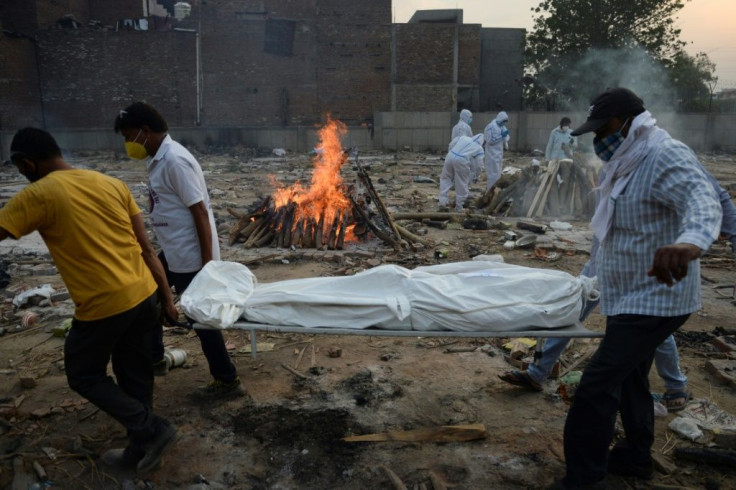Experts Reveal India's Biggest COVID-19 Superspreaders: ‘Youngsters’ Loitering On Streets
KEY POINTS
- The survey was conducted by researchers of Saurashtra University in Gujarat
- Experts say youngsters are flouting COVID-19 norms
- Many of these youngsters venture out by giving various excuses to family
Health experts in India have identified loitering “youngsters” as the country’s biggest COVID-19 superspreaders amid a devastating second wave of the virus.
Researchers at Saurashtra University in Gujarat's Rajkot city carried out a field survey as part of an effort to identify the virus superspreaders in and around the city. The survey involved 1,080 people, who were found loitering in the streets.
Roughly 71% of them, in the age group of 15-40 years, said they had no genuine reason to be outside, according to assistant professors Dimpal Ramani and Hasmukh Chavda.
“We saw that vegetable vendors or grocery shop owners were often dubbed as superspreaders. But we have found that these youngsters are actually responsible for the spread as they not only move around without reason but also give two hoots to Covid rules like mask and social distancing,” Ramani told The Times of India.
“We found that teenagers and youngsters are the actual superspreaders because they venture out by giving various excuses or convincing their parents with emotional blackmail,” she added.
The survey comes as the Indian government reports more than 4,000 COVID-19 deaths a day, with the total number of virus-related deaths hitting 250,000 as of Wednesday, according to India’s Ministry of Health and Family Welfare.
The country currently has over 3.7 active COVID-19 cases. According to data from Johns Hopkins University, less than 3% of India’s 1.4 billion residents have received their vaccine.
Hospitals and health clinics in major cities and rural areas have been hit with a massive shortage of medical equipment, including ventilators and oxygen cylinders. Crematoriums are also full. Recently, several decomposed and half-burnt bodies were recovered from the Ganges river in Bihar and Uttar Pradesh.
India's COVID-19 second wave worsened after nearly four million largely non-mask-wearing devotees were allowed to attend the Kumbh Mela festival between March 31 and April 24 in Haridwar, Uttarakhand.
"Our faith is the biggest thing for us. It is because of that strong belief that so many people have come here to take a dip in Ganga. They believe that Maa (mother) Ganga will save them from this pandemic," Festival organizer Siddharth Chakrapani had earlier told AFP news agency.

© Copyright IBTimes 2024. All rights reserved.






















